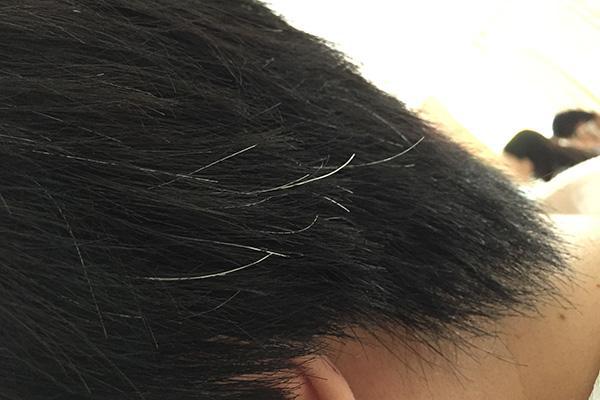
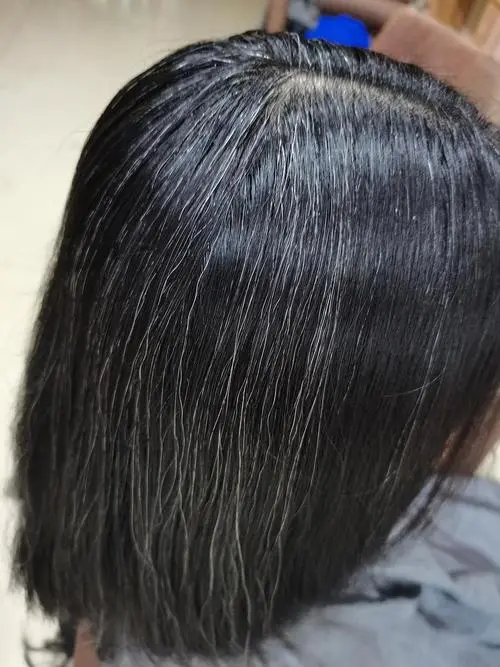
In today’s society, it’s not uncommon for young people to have some white hair on their heads.
This phenomenon, professionally known as premature graying of hair, or colloquially termed “premature graying,” is no longer a rarity. In medical terms, normal individuals start experiencing a decline in hair pigment cells around the age of 35, leading to the graying of hair. Those who experience gray hair before this age fall into the category of premature graying. What are the reasons behind this phenomenon?
There are many reasons why young people may develop white hair.
Here are some of them:
1. Genetic factors:
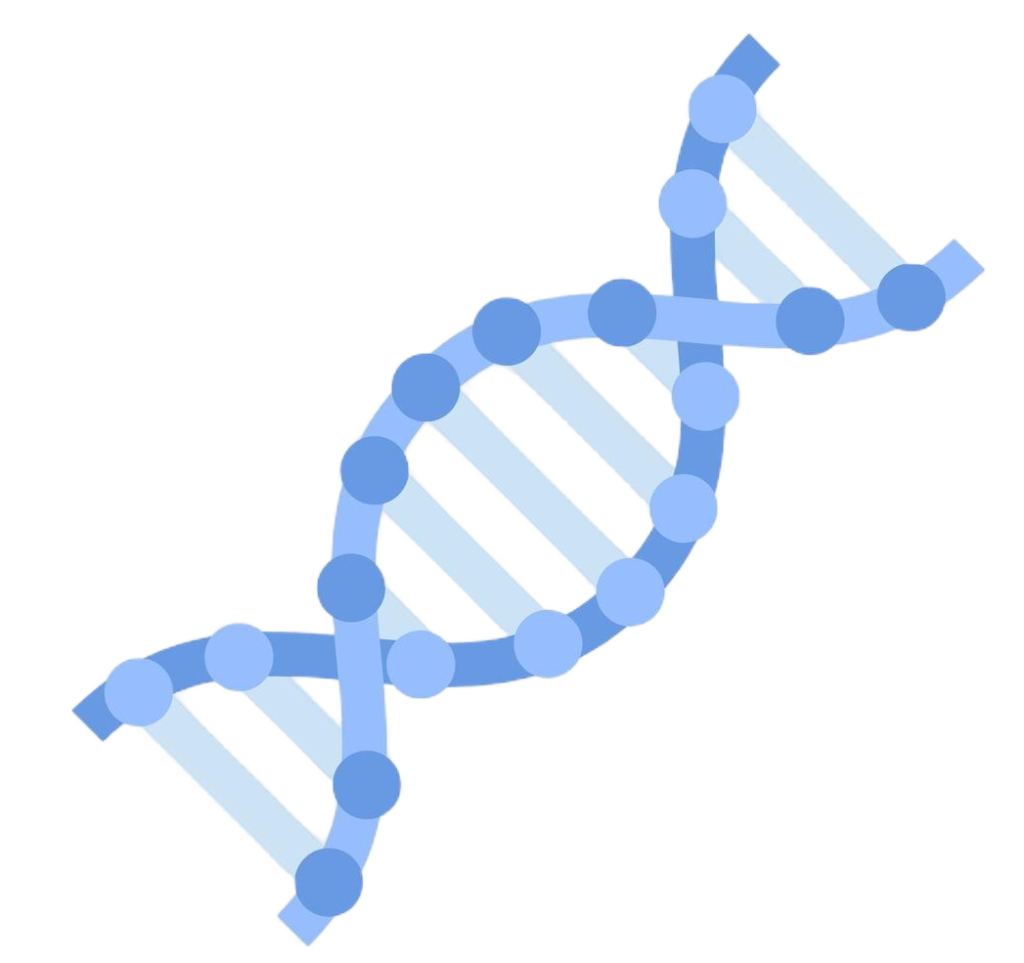
The appearance of white hair is somewhat related to genetics. If there is a history of early graying in your family, you may experience white hair at an earlier age.
2. Stress and anxiety:
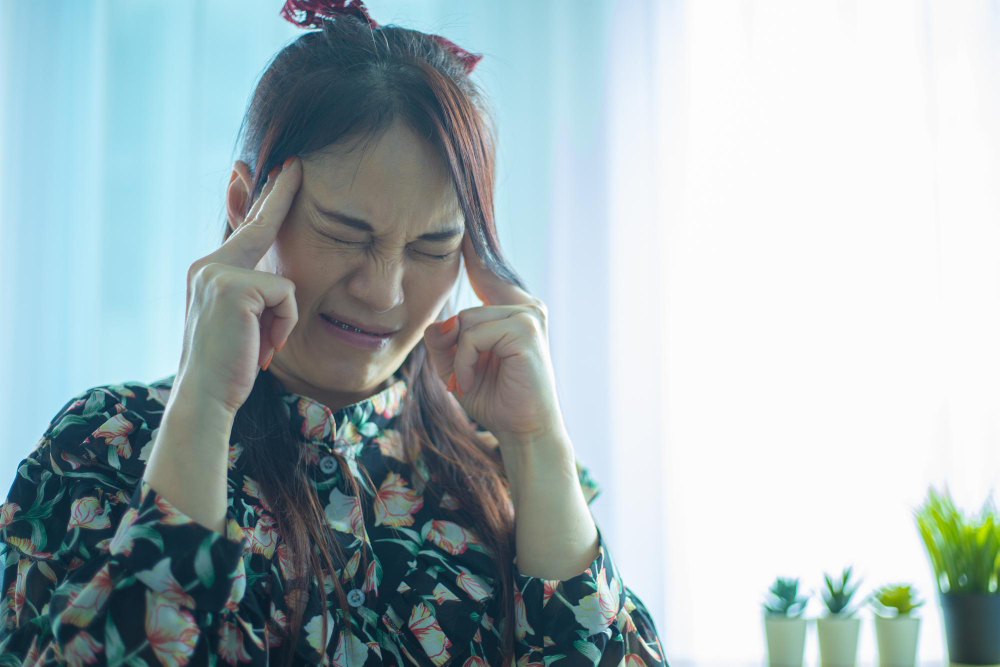
Prolonged mental stress and anxiety can disrupt normal metabolism and blood circulation in the body, leading to premature graying of hair.
3. Poor nutrition:
Lack of essential nutrients in daily diet, such as vitamin B12, folic acid, iron, copper, etc., may affect normal hair growth and pigment deposition, resulting in white hair.
4. Illness or medication:

Certain illnesses such as thyroid disorders, vitiligo, etc., and certain medications such as antidepressants, chemotherapy drugs, etc., may affect melanin synthesis and secretion, leading to white hair.
5. Lifestyle habits:

Unhealthy lifestyle habits such as smoking, excessive alcohol consumption, staying up late, etc., can affect overall health and subsequently impact hair growth and color.
It’s important to note that the presence of white hair in young people doesn’t necessarily indicate a health problem. However, if there is a significant amount of white hair or if it is accompanied by other symptoms, it is advisable to seek medical attention promptly to determine if there are any underlying health issues. Meanwhile, maintaining good lifestyle habits and a positive mindset, along with a balanced diet, can also help prevent and delay the onset of white hair.
There are several ways young people can prevent and delay the appearance of white hair:
1. Maintain a healthy lifestyle:

A balanced diet, adequate sleep, and regular exercise, while avoiding excessive fatigue and stress, contribute to overall health and help prevent and delay the onset of white hair.
2. Balanced diet:
Ensure intake of sufficient vitamins, minerals, and proteins, especially foods rich in vitamin B complex, vitamin C, vitamin E, iron, copper, zinc, etc. such as lean meats, fish, legumes, eggs, fresh vegetables, and fruits.
3. Avoid excessive hair dyeing and perming:

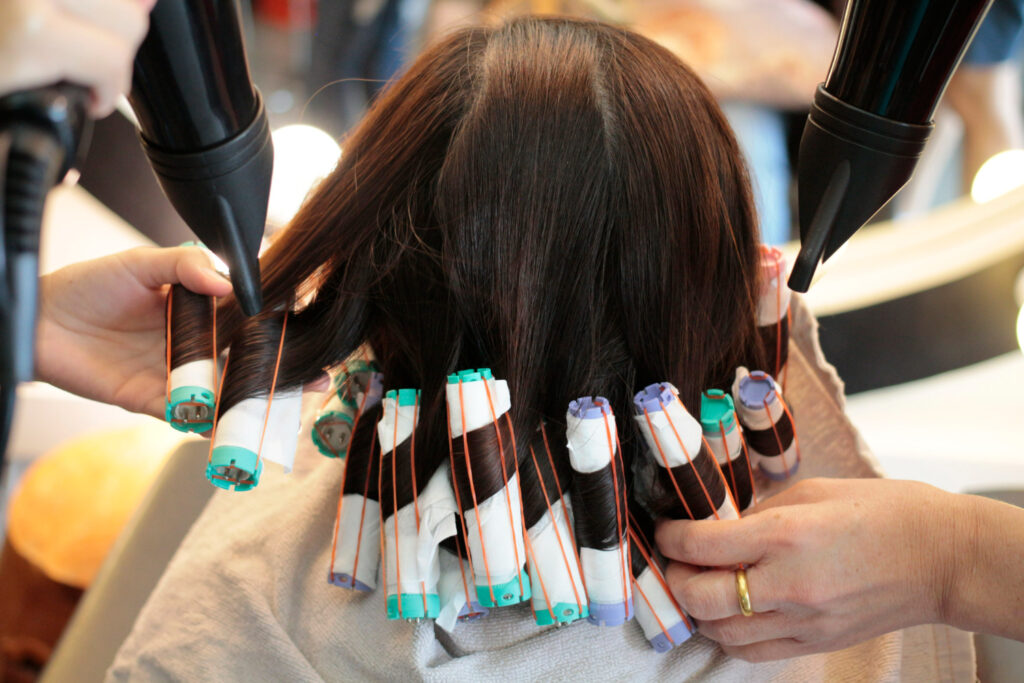
Excessive hair dyeing and perming damage the hair, leading to premature graying. Therefore, young people should avoid frequent hair dyeing and perming and allow their hair to grow naturally.
4. Maintain a positive mindset:

A positive mindset helps maintain overall health and prevents and delays the onset of white hair. Emotions can be regulated through exercise, music, travel, etc., to keep spirits high.
5. Regularly check your health:

If there are underlying health issues such as chronic illnesses or malnutrition, seek timely medical treatment to ensure overall health, thus helping to prevent and delay the appearance of white hair.
It’s important to note that the appearance of white hair is influenced by factors such as genetics and age, and preventive measures may not always be successful. If there is a significant amount of white hair or if it is accompanied by other symptoms, it is advisable to seek medical attention promptly to determine if there are any underlying health issues.
Diet plays a crucial role in preventing and delaying the onset of white hair.
Here are some suggestions to help maintain healthy hair and prevent and delay the appearance of white hair through diet:
1. Balanced diet:

Ensure intake of various nutrients, including proteins, vitamins, minerals, etc. A diverse diet helps the body absorb various essential nutrients.
2. Consume foods rich in antioxidants:
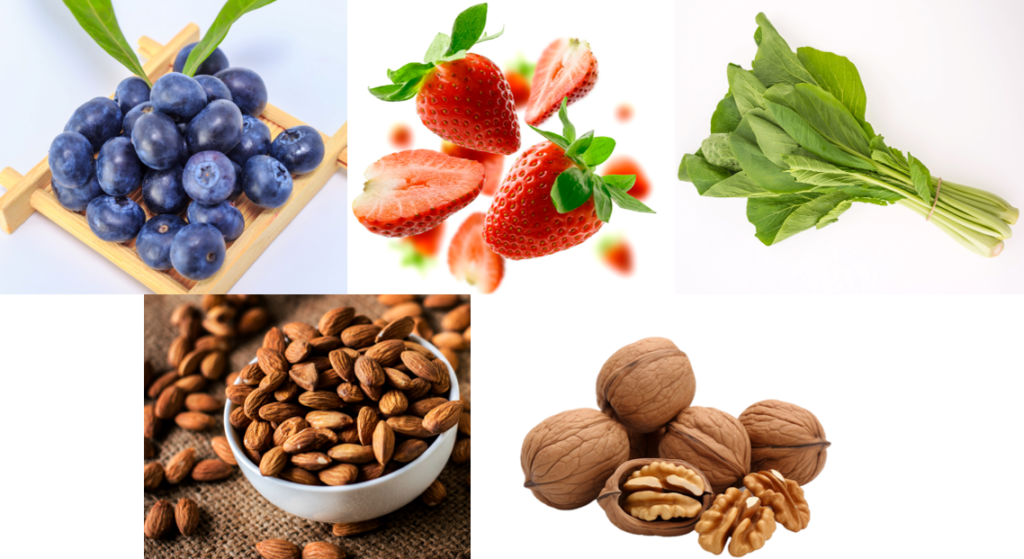
Antioxidants help combat damage caused by free radicals, thus protecting hair health. Foods such as blueberries, strawberries, spinach, nuts, etc., are rich in antioxidants.
3. Increase intake of Vitamin B complex:
Vitamin B complex plays a significant role in the growth and maintenance of hair color. Ensure an adequate intake of Vitamin B12, folate, Vitamin B6, etc. Foods rich in these vitamins include lean meats, eggs, legumes, green leafy vegetables, etc.
4. Consume foods rich in iron and copper:
Iron and copper are essential minerals for hair health. Iron and copper deficiency may lead to white hair. Foods rich in iron include lean meats, legumes, green leafy vegetables, etc.; while foods rich in copper include nuts, shellfish, lean meats, etc.
5. Ensure sufficient intake of protein:

Hair primarily consists of protein, so adequate protein intake is crucial for maintaining hair health. Lean meats, fish, legumes, eggs, etc., are all good sources of high-quality protein.
6. Increase intake of foods rich in melanin:

Melanin is an important substance that gives hair its color. Although melanin from food cannot be directly absorbed by the body, consuming foods rich in melanin, such as black sesame seeds, black beans, black rice, etc., may contribute to healthy hair.
7. Consume nuts and seeds in moderation:
Nuts and seeds are rich in healthy fats, protein, and vitamins, which are beneficial for hair health. For example, walnuts, almonds, flaxseeds, sunflower seeds, etc., are all good choices.
While diet plays a role in preventing and delaying the onset of white hair, the effectiveness may vary from person to person. Therefore, maintaining a healthy lifestyle, including balanced diet, regular exercise, and maintaining a positive mindset, are all important methods for preventing and delaying the appearance of white hair.
此文章还有以下语言版本:
![]() 简体中文 (Chinese (Simplified))
简体中文 (Chinese (Simplified)) ![]() Melayu (Malay)
Melayu (Malay)



